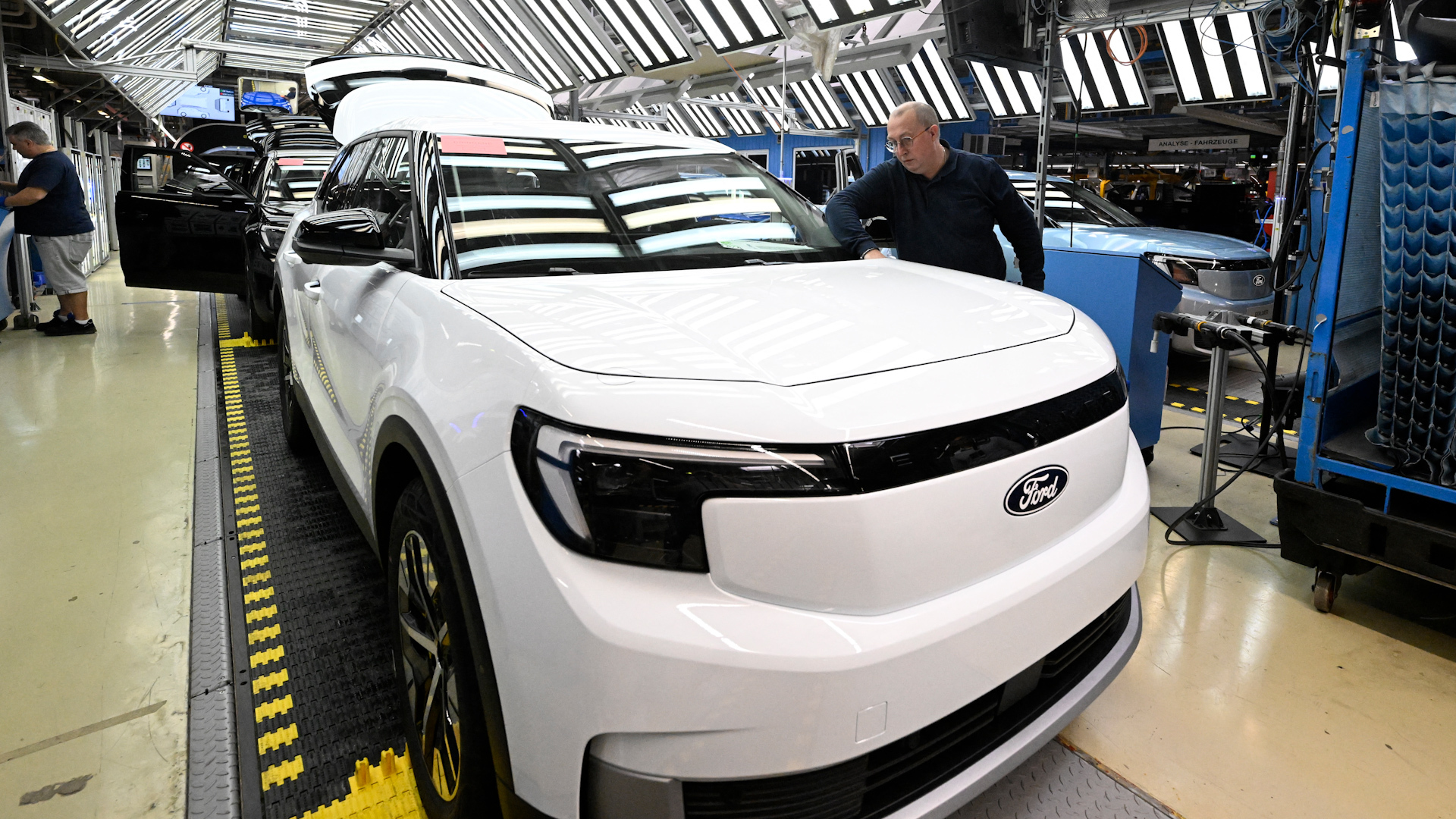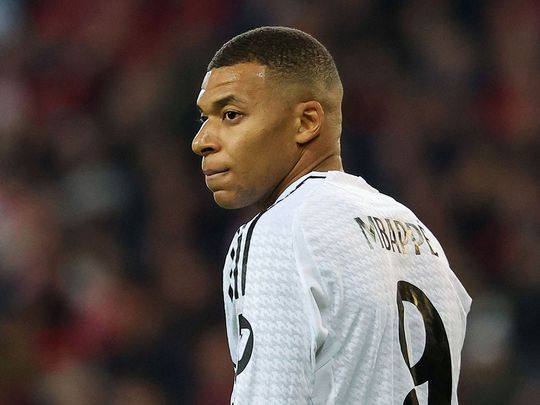World
Trump’s return is terrible news for Ukraine. Europe should step into the breach – but will it? | Timothy Garton Ash

The first victim of Donald Trump’s second term as US president is likely to be Ukraine. The only people who can avert that disaster are us Europeans, yet our continent is in disarray. Germany’s coalition government chose the day we woke up to news of Trump’s triumph, of all days, to fall apart in bitter rancour. Unless Europe can somehow rise to the challenge, not just Ukraine but the whole continent will be left weak, divided and angry as we enter a new and dangerous period of European history.
In Ukraine itself, people have been trying to find a silver lining in that orange cloud rapidly approaching Washington. After all, they were increasingly frustrated with the self-deterrence of Joe Biden’s administration. This slender new hope was perfectly captured in a text message sent to me by a frontline Ukrainian commander. Trump, he wrote, “is a surprise-man, maybe things will get better”.
I would say there’s a five to 10% chance that the “surprise-man” 47th US president will threaten to increase support for Ukraine in order to strong-arm Vladimir Putin into a peace deal, as some of his prominent pro-Ukrainian supporters such as former US secretary of state Mike Pompeo have urged. As Ukrainian president Volodymyr Zelenskyy adroitly highlights, Trump hates more than anything to look like a loser.
However, there’s a 90% to 95% chance that he’ll do exactly what he’s repeatedly said he’ll do, and try to end the war by imposing a settlement on Ukraine. In July, he told Fox News: “I would tell Zelenskyy: no more. You’ve got to make a deal” – although he did add that he would threaten to give Kyiv “a lot more” aid in order to bring Putin to the table. But the terms envisaged by his vice-president, JD Vance – accepting the current territorial division of Ukraine and compelling it to concede neutrality – would be a great victory for Putin.
In reality, there is probably no deal that both Putin and Zelenskyy would currently accept. In a rare true statement, Putin’s spokesperson Dmitry Peskov has observed: “You can’t end the Ukraine conflict overnight.” What the incoming US president can do, however, is to reduce US economic and military support so dramatically that Kyiv is compelled to seek a ceasefire from a position of weakness. Worse still, this might create what the military expert Jack Watling has called a Brest-Litovsk scenario, with Ukraine scrambling to secure a deal from such a weak position that even the threat of a new enemy offensive might compel it to make more concessions, as happened to Russia itself when negotiating the 1918 Brest-Litovsk treaty with imperial Germany and its allies.
Yet even in the “peace through strength” scenarios envisaged by Trump’s few Ukraine hawks, Europe would have to do much more. In the co-authored Wall Street Journal article A Trump Peace Plan for Ukraine earlier this year, Pompeo proposed that European Nato allies raise their defence spending to 3% of GDP and contribute 80% of a $100bn fund for arming Ukraine. And of course, buy US arms and ammunition. Robert O’Brien, a former Trump national security adviser, wrote in Foreign Affairs that “Trump’s approach would be to continue to provide lethal aid to Ukraine, financed by European countries, while keeping the door open to diplomacy with Russia.” (My italics.)
Intellectually, many Europeans recognise that, sandwiched between an aggressively advancing Russia and an aggressively withdrawing America, Europe needs to do more for its own defence. The French intellectual Emmanuel Macron, who also happens to be president of France, reacted to Trump’s victory by informing the X-Twittersphere that he had spoken to German chancellor Olaf Scholz and they would work together for a “more united, stronger, more sovereign Europe in this new context”. But as a result of Macron’s own hubris, France now has a weak, unstable government effectively dependent for its political survival on the Putin-friendly populist Marine Le Pen. And Scholz’s government fell apart a few hours later, leaving Europe’s central power in pre- and post-electoral limbo, potentially for months, during this crucial period of geopolitical transition. Among the ostensible causes of the coalition’s collapse was the refusal of the Free Democrat leader and finance minister Christian Lindner to accept an extra €3bn of urgent support for Ukraine as part of a €9bn package of emergency spending.
Europe is also deeply divided in its response to Trump. In many of the more than 40 European countries represented at the European Political Community summit in Budapest yesterday, there were significant political forces that enthusiastically support him, and some of them are in power. Top of the list is the host of that meeting, Hungarian leader Viktor Orbán, but he is joined by such figures as Robert Fico in Slovakia, Aleksandar Vučić in Serbia and Geert Wilders, whose party is part of the ruling coalition in the Netherlands. Italy’s Giorgia Meloni may lean that way too. Not formally in national office, but still with political influence, are the likes of Le Pen in France, Nigel Farage in Britain, the AfD in Germany, the Law and Justice party in Poland and Vox in Spain. According to a study by Europe Elects, in seven European countries – Slovenia, Slovakia, Moldova, Bulgaria, Hungary, Georgia and Serbia – a majority of those asked would have voted for Trump if they had had the chance (excluding the don’t knows). They join the 78% of Russians who would have done the same. Yes, Trump is Russia’s choice.
Then there’s Britain. Senior members of prime minister Keir Starmer’s cabinet have in the past garlanded Trump with the fruitiest insults (“neo-Nazi sympathising sociopath”), but now a 10 Downing Street read-out of Starmer’s phone call to the president-elect says he offered “hearty” congratulations and they “fondly” recalled their get-to-know-you dinner in September. Of course this is the customary hypocrisy of international relations, but there’s a real possibility that, given Britain’s parlous economic condition after Brexit and 14 years of Tory austerity, its government will be tempted to try for a “special relationship” exemption from the swingeing tariffs with which Trump is threatening to hit Europe. Yet as the likely next chancellor of Germany, Friedrich Merz, recently commented, for Europe both to save Ukraine and stand up for itself in a dangerous world will require the closest cooperation between – at a minimum – Germany, France, Poland and Britain. Can defence and diplomatic unity really be achieved with such political and economic disunity?
We have two months until Trump’s inauguration on 20 January to come up with a better answer. We must. (Doesn’t mean we will.)










